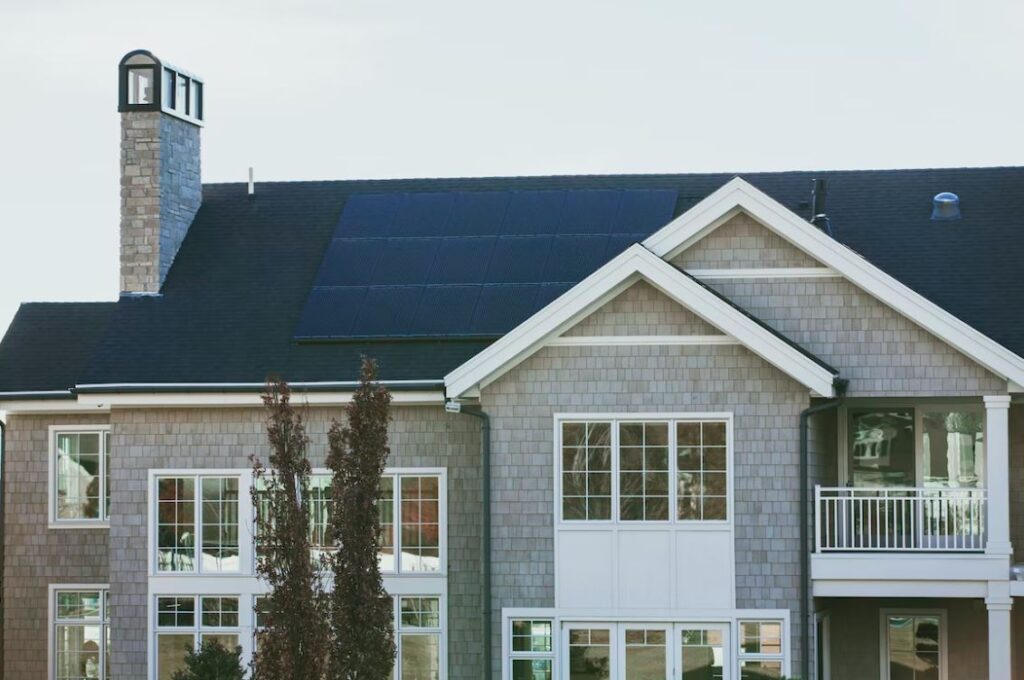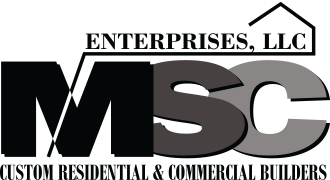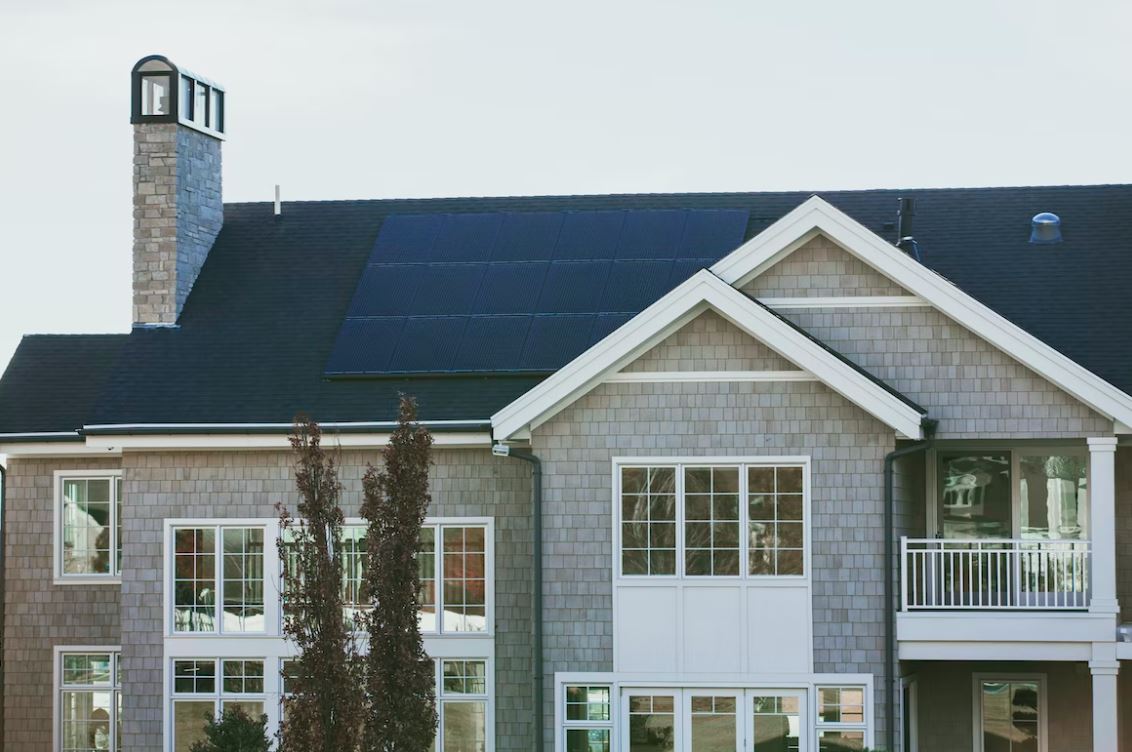
As the cost of energy continues to rise, people are becoming more conscious of their impact on the environment. This is why many homeowners are turning to custom homes that incorporate energy efficiency and green building principles into their design.
Not only can these homes help you save money on your monthly utility bills, but they also provide a healthier living environment for your family and reduce environmental impacts. In this article, we will discuss the importance of energy efficiency and green building in custom homes so that you can make an informed decision when designing or remodeling your home.
Green Building in New Jersey Residential Home Construction
Energy efficiency and green building are two of the most important considerations when it comes to designing custom homes. Taking into account the current climate crisis, energy efficiency encourages homebuilders to pay attention to details like window construction, insulation, shading and other features that reduce both energy costs for homeowners and carbon dioxide emissions into the atmosphere. Green building is a broader concept that takes energy efficiency one step further by emphasizing materials and designs that embody sustainable practices.
Whether it be wood from fallen or sustainably harvested trees or recycled building materials, green building focuses on ways to reduce waste while still providing a comfortable living environment to homeowners. When these two concepts work together in custom designed homes, they can provide families with high-quality residences that minimize their environmental impact well after they move in.
The Cost Savings Associated With Energy Efficient Homes
Energy efficient homes can have significant long-term cost savings associated with them both in terms of up front construction costs, as well as long-term utility bills. By using materials that are more energy efficient during the building and installation process of new homes, homeowners are able to save money and reduce the need for expensive fixes down the line.
Energy efficient homes require fewer modifications to keep running throughout the year than their traditional counterparts, meaning less money spent on energy bills by relying on modern efficiency standards rather than outdated installation materials and styles. In this way, energy efficiency has become a boost to many homeowners as they invest in themselves and their futures with a home where comfort and efficiency come together.
How Custom Homes Can Provide A Healthier Living Environment For Families
Custom homes offer an incredibly healthy living environment for families. They are designed with eco-friendly materials, energy efficient systems, and tight environmental control that help maintain indoor air quality with greater precision than in traditionally built homes. In a custom home, you can choose to include features like advanced air filtration systems, superior insulation, and low- or zero-VOC finishes for an even healthier environment.
Additionally, these custom homes often come equipped with smart technologies that can help create a more comfortable living environment and conserve energy in the process. All of these things combined can provide families with fewer pollutants in their home, improved IAQ, and lower electricity costs – making a custom home an ideal choice for those looking to prioritize health in their living space.

How Green Building Principles Reduce Environmental Impacts
Green building principles have been designed to reduce the environmental impact of buildings. This is done in a number of ways, such as making sure the building itself is sustainable – it should be designed with renewable materials, built with energy-efficient appliances and systems, and use natural elements like sun and wind whenever possible.
Green building principles also consider the impact that a building has on its surroundings: it should work to keep air pollution low in the vicinity as well as any rainwater runoff when it rains. Green building principles also seek to improve the quality of life for both those inside and outside of the building by using local resources in construction and promoting healthy living conditions. Together, these strategies lower environmental harm connected to buildings, helping promote a more sustainable world for us all.
The Steps To Incorporate Energy Efficiency And Green Building Into Your Home Design Or Renovation Project
Creating an Energy-Efficient Design Plan
Once you have done your research, come up with a plan for incorporating energy efficiency into your home design or renovation project. Consider using natural light wherever possible, installing solar panels, investing in insulation materials that will keep heat out during hot summer months and in during cold winter months, installing low-flow fixtures such as toilets and showerheads, choosing appliances that are Energy Star certified, utilizing passive heating and cooling systems, investing in energy efficient windows and doors, selecting furniture made from sustainable materials such as bamboo or recycled plastic, etc. All of these decisions can contribute to making your home more energy efficient.
Hiring a Professional Consultant
The process of designing an energy-efficient home can be complex. That’s why it is often recommended that you hire a professional consultant who can help guide you through the process and ensure that everything complies with local regulations. A professional consultant will also be able to suggest additional measures that could further improve the efficiency of your home design or renovation project.
Final Thoughts About Energy Efficiency And Green Home Building
Incorporating energy efficiency and green building into your custom home design or renovation project can be a complex process. However, taking the time to research these principles and plan out an energy efficient strategy for your home will pay off in the long run with lower electricity costs, improved air quality, and a healthier living environment for you and your family. With the help of a professional consultant, you can ensure that your home is designed and built to the highest standards of energy efficiency and sustainability. By following these steps, you can create a custom home that is equipped with energy efficient design principles and is comfortable for you and your family.
Want to build an energy efficient home in New Jersey?
Call 732-905-0005 or Contact Us Now
Frequently Asked Questions
Q: Are renewable energy systems used in green building practices?
A: There is a lot of debate over whether renewable energy systems should be used in green building practices. Some people believe that it’s better to use completely sustainable materials and construction methods instead of relying on renewable energy systems. However, others argue that using renewable energy systems is the only truly sustainable option, since those systems rely on resources that can be replenished.
Q: Are natural resources used in energy efficient lighting?
A: Yes, natural resources are used in energy efficient lighting. However, they use less energy and last longer than traditional light bulbs. For example, LED light bulbs use around 75% less energy than traditional incandescent light bulbs and last up to 25 times longer. So, while natural resources are used in energy efficient lighting, they ultimately help save energy and reduce greenhouse gas emissions.
Q: Will future generations increase the rate of energy consumption?
A: It’s difficult to say for sure, but it’s likely that future generations will increase the rate of energy consumption. The population is growing and becoming more industrialized, so there will be a greater demand for energy. At the same time, however, new technologies are being developed that could help us to use energy more efficiently. So it’s hard to say exactly what will happen.


